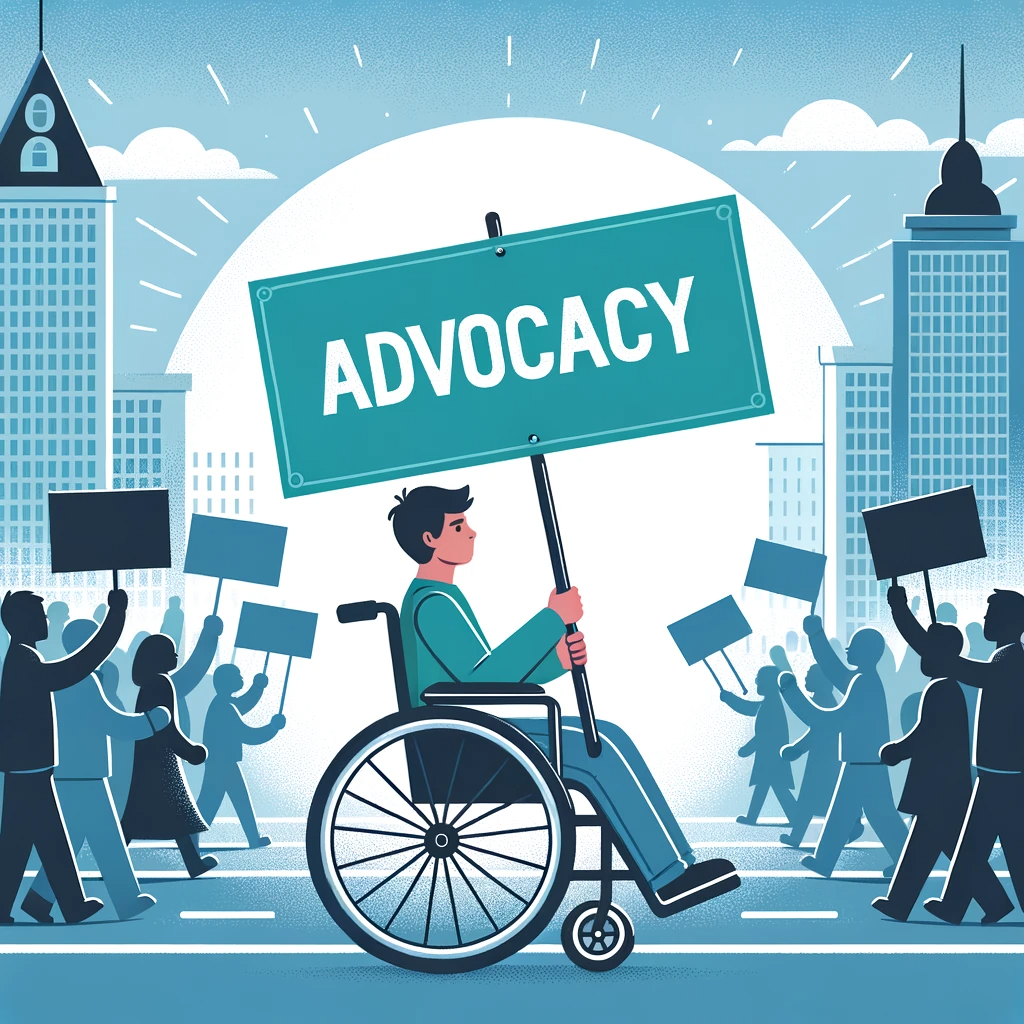Life has a funny way of presenting us with moments of clarity, moments where we see our path and purpose more distinctly than ever before. Such was my experience as I sat across from Amanda Elliott, the Chief of Staff of the Illinois Department of Human Services. I was there with SEIU HCII to shed light on an issue close to my heart: home care for disabled and elderly individuals in Illinois. And as the conversation unfolded, it became abundantly clear that those who need the most help often have the faintest voice.
Being diagnosed with Spinal Muscular Atrophy might seem like an incredible challenge to some, and indeed, it has its moments. But SMA has also granted me an incredibly profound perspective on life. A number of topics were discussed by everyone in this meeting, but I chose to drill down on something specific. The regional offices overseeing the home care program in Illinois frequently interpret and enforce policies inconsistently. Too often, these interpretations are not aligned with the best interests of the disabled community. I’ve heard countless tales of individuals with disabilities losing benefits and essential support or being threatened with removal from the program merely for seeking additional resources. There’s a palpable fear of retaliation among the disabled community, and alarmingly, this intimidation seems deliberately targeted at those most vulnerable and less equipped to defend themselves.
It’s crucial to differentiate between the regional offices and the state office. My observations and concerns primarily pertain to the regional offices’ approach. In contrast, the state office, under the Pritzker administration, has consistently demonstrated a genuine commitment to serving the disabled community. Their efforts and intentions consistently align with the well-being and advancement of those they serve. It is evident that the state office truly has the best interests of the disabled community at heart. The disparity in approach between the regional and state offices underscores the need for a unified and compassionate strategy across all levels of service.
As I discussed my perspective with Ms. Elliott, I was reminded of the myriad times I’d encountered barriers — not just physical ones but systemic obstacles that hinder the disabled community from accessing the resources, respect, and representation we so rightfully deserve. The ironies are undeniable. Departments created to uplift the disabled are sometimes the very entities that inadvertently (or sometimes blatantly) let them down.
It wasn’t just the structural flaws of these offices that concerned me; it was their seeming unawareness, their blind spots to the very community they serve. How many times had their decisions been made without genuine input from those directly affected? Too often, it seemed, and it was this detachment, this chasm of understanding, that I aimed to bridge during our meeting.
Yet, as I made my case, a more profound realization struck me. How often do individuals with disabilities genuinely get to interface with those in power? How often are our stories, challenges, and aspirations relayed firsthand? Not as often as I’d hope. This is not solely because those in power don’t care to listen, but because many of us, due to our conditions, cannot communicate in the ways most people are accustomed to. Many are noncommunicative, while others might have speech challenges that make them hard to understand. Still, others might lack the physical ability or resources to be in such rooms of decision-making.
Herein lies the paradox: the very individuals who need the most assertive advocacy are frequently the least equipped to do so. As I voiced my concerns, concerns that weren’t just my own but echoed the sentiments of countless souls, I felt the weight of that responsibility. With the privilege of speech, of articulation, comes a duty, one I cannot and will not take lightly.
My SMA, while it poses its challenges, hasn’t robbed me of my voice. In many ways, it has amplified it. It’s made me more attuned to the silent struggles around me, more empathetic towards the whispered cries for change. And having this ability, this gift to communicate and advocate, places upon me a unique responsibility. I realized that while I advocate for my rights, I am also doing so for countless others. I represent the aspirations, hopes, and challenges of many who, for various reasons related to their disabilities, can’t easily make their voices heard.
Ms. Elliott listened, genuinely so. And in that space, between words spoken and notes taken, I felt hope. Hope that this dialogue was the beginning of a more inclusive narrative. Hope that those who couldn’t speak, for one reason or another, were represented in that room through my words.
I left the meeting with a sense of purpose, reinforced and redoubled. We, the ones who can voice our concerns, who can articulate our needs, have a unique responsibility. We are not just advocating for ourselves but for an entire community whose hopes, dreams, and rights are just as valid. Because every voice matters, and until every voice is heard, our advocacy, our fight for a better, more inclusive tomorrow, continues.
I’d like to make this blog a bit more interactive, so I’ve created a Google Form that lets anyone send in questions or topics they would like me to explore. You can even submit anonymously, if you wish.
Tell me what you want me to write about. Nothing is off-limits, but I don’t guarantee I will create a post based on your input.
